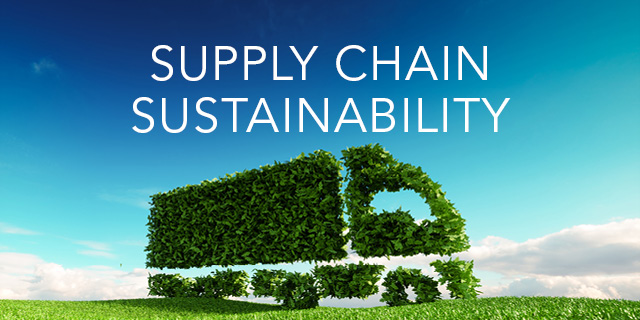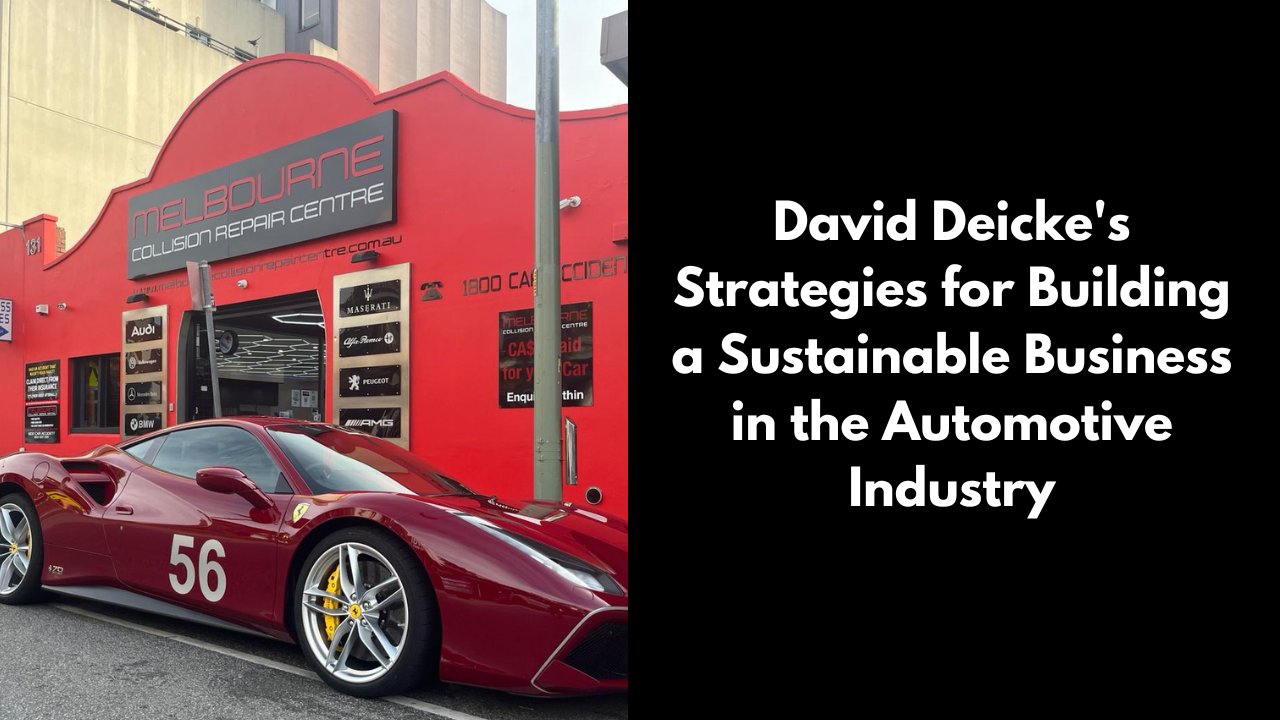Introduction: The Importance of Sustainability
In today’s business landscape, sustainability is no longer just a buzzword; it’s a crucial component of long-term success. As a multimillionaire businessman and owner of a thriving car smash repair center, David Deicke understands the importance of incorporating sustainable practices into his operations. In this blog, David shares his strategies for building a sustainable business in the automotive industry, highlighting how these practices contribute to environmental stewardship, customer loyalty, and overall business growth.
Embracing Green Technology

Energy-Efficient Operations: One of the primary steps David has taken towards sustainability is incorporating energy-efficient technologies into his repair centers. From LED lighting to energy-efficient HVAC systems, David explains how these upgrades not only reduce energy consumption but also lower operating costs. Implementing solar panels to generate renewable energy on-site is another step towards reducing the carbon footprint of his businesses.
Eco-Friendly Products and Materials: David discusses the importance of using eco-friendly products and materials in the repair process. This includes water-based paints, recycled auto parts, and non-toxic cleaning supplies. By opting for sustainable materials, David ensures that his repair centers minimize their impact on the environment while maintaining high-quality service standards.
Waste Reduction and Recycling
Comprehensive Recycling Programs: Effective waste management is crucial for sustainability. David highlights the comprehensive recycling programs implemented at his repair centers. This includes recycling metals, plastics, and glass from damaged vehicles, as well as properly disposing of hazardous materials like oil, batteries, and tires. By diverting waste from landfills, these practices contribute to a cleaner environment.
Innovative Waste Reduction Techniques: David also explores innovative techniques for reducing waste. For example, using digital documentation and communication tools to minimize paper usage, and implementing inventory management systems to reduce excess stock and avoid unnecessary waste. These measures not only benefit the environment but also streamline operations and reduce costs.
Sustainable Supply Chain Practices

Partnering with Green Suppliers: Building a sustainable business requires collaboration with like-minded partners. David emphasizes the importance of partnering with suppliers who prioritize sustainability. This includes sourcing parts and materials from companies that adhere to environmentally friendly practices and have transparent sustainability policies.
Local Sourcing: Whenever possible, David opts for local suppliers to reduce the carbon footprint associated with transportation. Supporting local businesses also strengthens the community and fosters mutually beneficial relationships. David explains how these practices not only contribute to sustainability but also enhance the resilience and reliability of his supply chain.
Employee Engagement and Education
Creating a Green Culture: Sustainability starts from within. David believes in fostering a green culture among his employees. This involves educating staff about sustainable practices and encouraging them to contribute ideas for further improvement. Regular training sessions and workshops on environmental stewardship are integral to embedding sustainability into the company culture.
Employee Incentives: To motivate employees to adopt sustainable practices, David has introduced incentive programs. For example, rewarding employees who carpool, use public transportation, or adopt other eco-friendly commuting methods. These incentives not only reduce the company’s carbon footprint but also promote a sense of shared responsibility and engagement among the workforce.
Customer Involvement and Awareness

Educating Customers: David recognizes the importance of involving customers in his sustainability efforts. He discusses initiatives to educate customers about the environmental impact of their vehicle repairs and the benefits of choosing a sustainable repair center. Providing information about eco-friendly products and services helps customers make informed decisions and supports the company’s green initiatives.
Sustainable Services: Offering sustainable services is another key strategy. David highlights options such as eco-friendly car washes that use less water and biodegradable cleaning agents, as well as providing customers with the choice of recycled parts. These services not only appeal to environmentally conscious customers but also differentiate his business in a competitive market.
Measuring and Reporting Sustainability Efforts
Tracking Progress: To ensure that sustainability efforts are effective, David emphasizes the importance of tracking and measuring progress. This involves setting clear sustainability goals and using key performance indicators (KPIs) to monitor achievements. Regular audits and assessments help identify areas for improvement and ensure that the business stays on track.
Transparent Reporting: David believes in transparent reporting of sustainability efforts. Sharing progress reports with stakeholders, including employees, customers, and partners, builds trust and accountability. Transparent reporting also highlights the company’s commitment to sustainability and can attract environmentally conscious customers and investors.
The Business Case for Sustainability
Long-Term Cost Savings: David argues that sustainability is not just good for the environment but also makes sound business sense. Energy-efficient technologies and waste reduction measures lead to significant cost savings over time. Additionally, sustainable practices can enhance operational efficiency, reduce regulatory risks, and improve the overall resilience of the business.
Building Brand Loyalty: Customers are increasingly seeking out businesses that demonstrate a commitment to sustainability. David explains how adopting sustainable practices can enhance brand loyalty and attract a growing segment of environmentally conscious consumers. A strong reputation for sustainability can also differentiate the business in a competitive market and foster long-term customer relationships.
Conclusion: Leading by Example
David Deicke’s journey towards building a sustainable business in the automotive industry is a testament to the power of innovation and commitment. By embracing green technology, reducing waste, fostering a green culture, and involving customers in sustainability efforts, David has positioned his repair centers as leaders in environmental stewardship.
For aspiring entrepreneurs and industry leaders, David’s strategies offer valuable insights into integrating sustainability into business operations. By prioritizing sustainability, businesses can not only contribute to a healthier planet but also achieve long-term success and resilience. David’s vision and practices serve as an inspiration to lead by example and drive positive change in the automotive industry and beyond.

